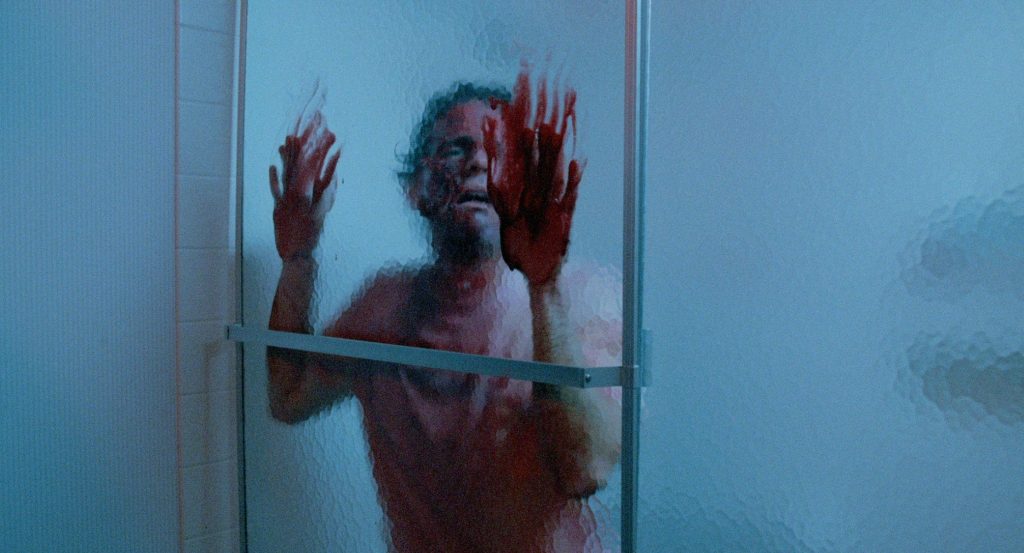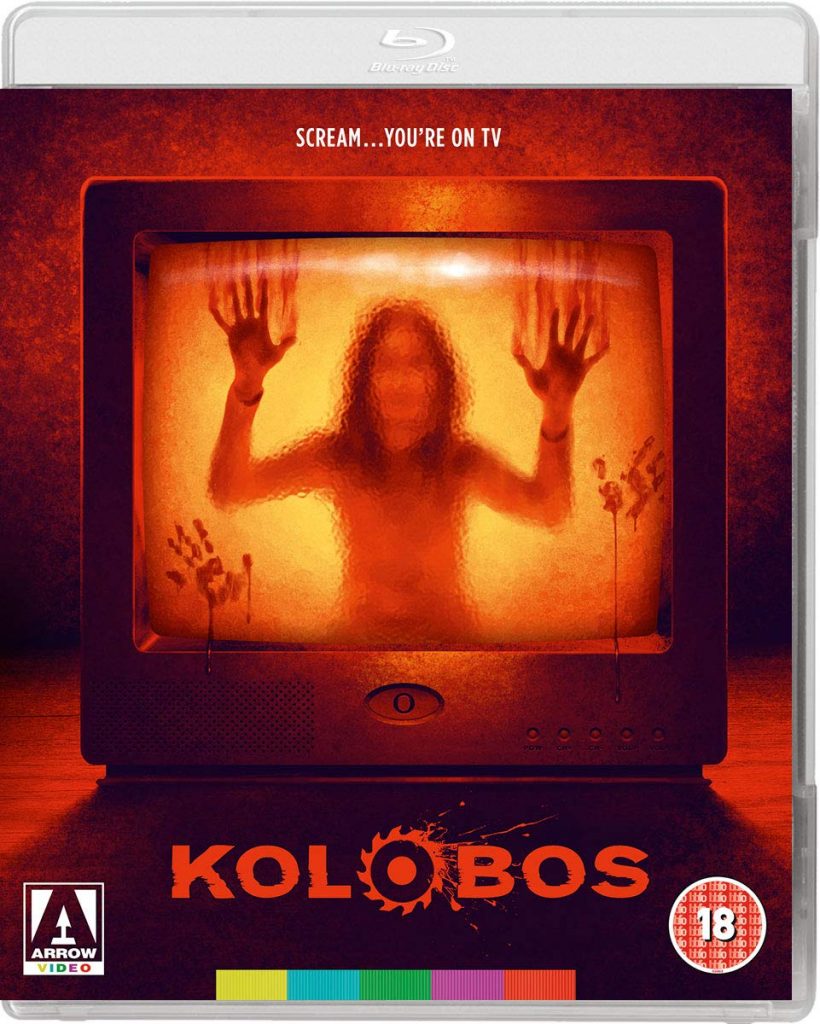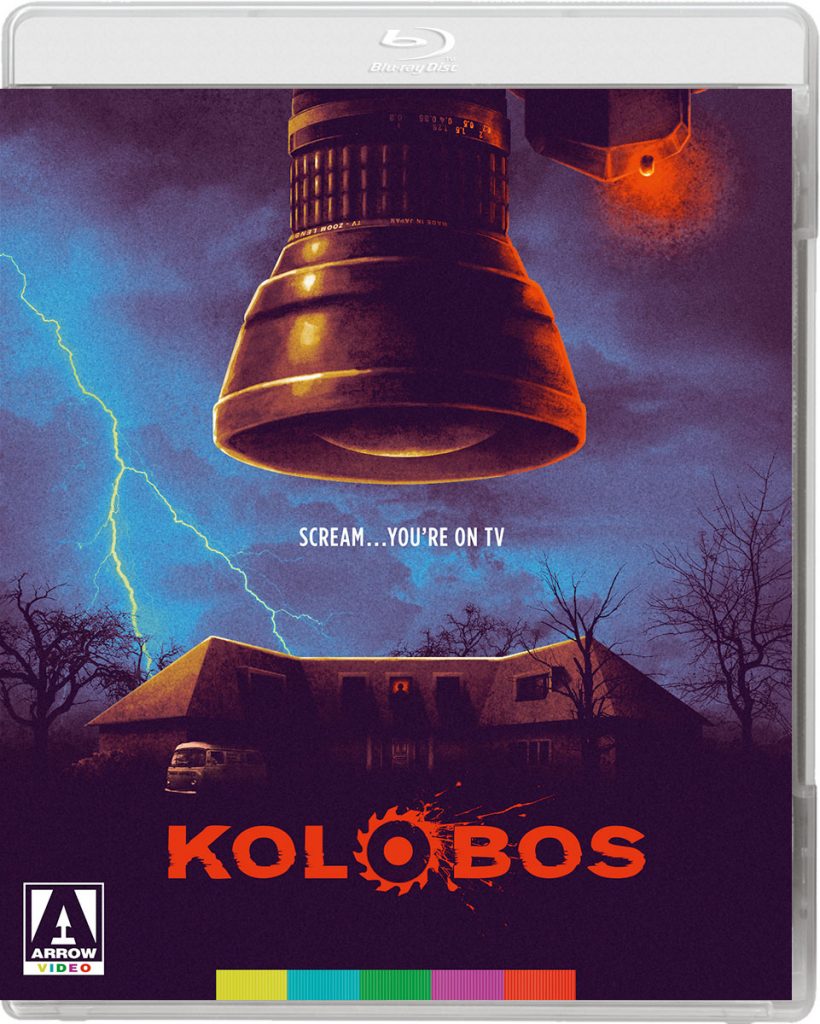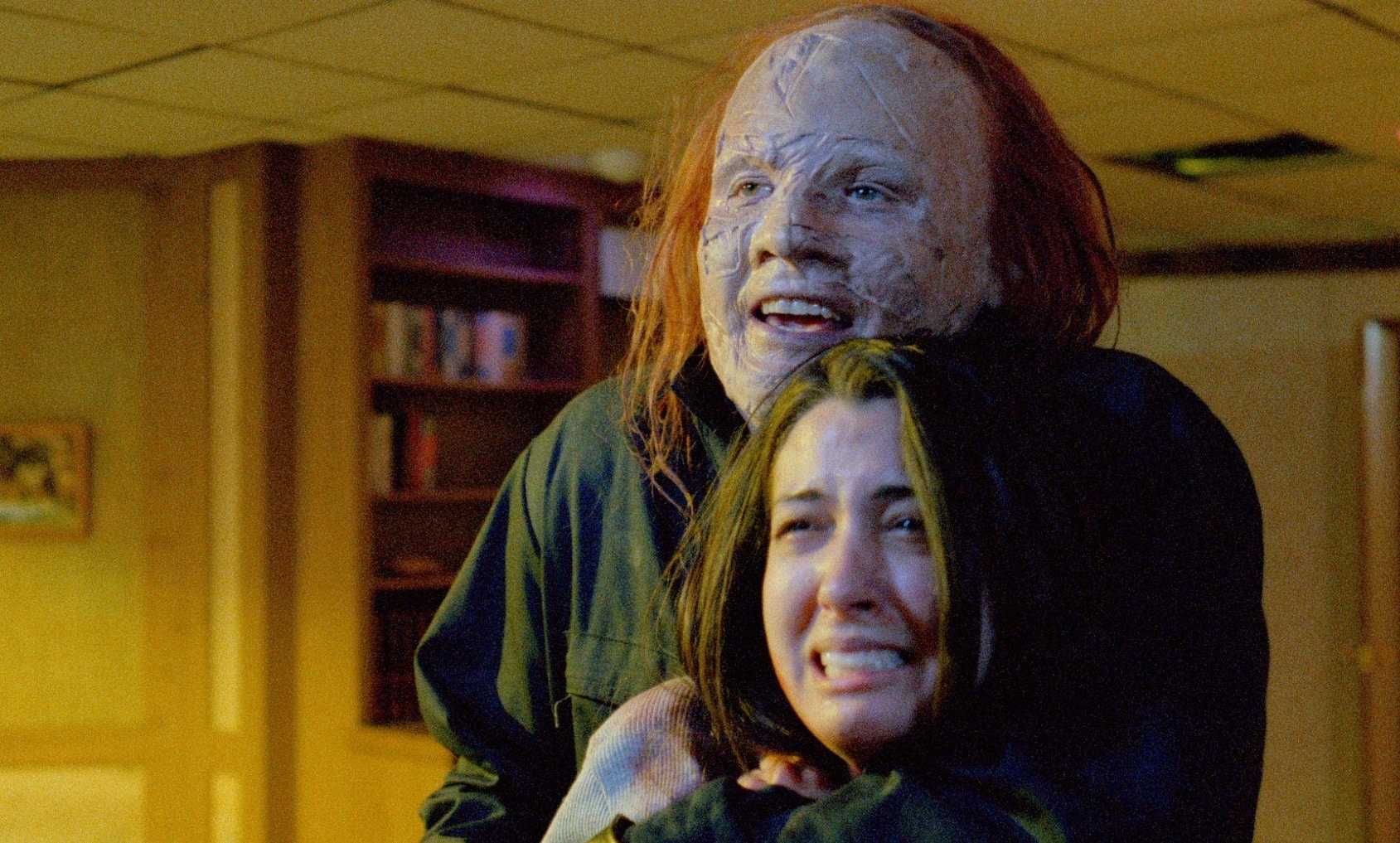
Ask me to name a reality TV-related horror movie from the turn of the century, and my first responses would be My Little Eye and, after a moment of head scratching, Series 7: The Contenders, whilst doing my best to black out Halloween: Resurrection. One title which, before now, would never have come to mind is Kolobos. Indeed, I’m fairly certain I’d never heard of the film at all until getting word that Arrow were putting it out on Blu-ray. It seems I’m hardly alone in this, as this 1999 US production from a group of recent film school graduates wound up going direct to video and for the most part disappearing under the radar of even the most attentive horror devotees. Yet it seems that Kolobos did that insidious cult movie thing, becoming an object of obsession among the few it did manage to reach, and gradually reaching out its tendrils in search of an audience which, now 20 years on, might be more receptive than they were on release.
While I think it would be a bit of a stretch to declare Kolobos a lost classic, it’s still easy to see where the fascination might come from. Compare it with the bulk of the American horror to have washed up in the wake of Scream, and it’s clearly a much more thoughtful, imaginative and bold piece of work. Given that it favours a harsh, in-your-face approach to violence and gore, it’s not hard to see why it might have failed to curry favour when arriving back to back with a certain other 1999 film school graduate production, The Blair Witch Project (although I daresay it may share some common ground with Book of Shadows: Blair Witch 2). Combine this emphasis on brutality and use of lethal booby traps with an audio-visual aesthetic which draws heavily on Italian horror, right down to theme music which is to Suspiria as Start! is to Taxman, and it might well be argued that Kolobos blazed a trail for another notable film debut which arrived a few years later, Saw.

Still, any way you cut it, it’s not hard to see why Kolobos didn’t capture the public imagination the way Eduardo Sanchez and Daniel Myrick’s film did, or how James Wan and Leigh Whannel’s would five years later. While it’s handsomely shot, sports a good-looking cast and takes the time-honoured, ever-marketable approach of trapping them all in a house and chopping them up one by one, directorial duo Daniel Liatowitsch and David Todd Ocvirk and co-writer/producer Nne Ebong have something a bit more cerebral and abstract in mind, which I doubt was ever going to be to the taste of a mass audience – but is, I suppose, just the ticket for late-in-the-day cult status.
After a POV-shot prologue showing a bloodied, heavily traumatised, as-yet unidentified woman staggering from the streets to the hospital, we then skip back in time a little and meet five fresh-faced twentysomethings who have auditioned and been accepted as part of a mysterious experimental film shoot. There’s no script, and no clear indication of what is expected of them; just that they have to be in a house together, where they will be filmed at all times. The chosen five are your standard stew-pot of the ambitious and the attention-seeking, from motormouth party girl Tina (Promise LeMarco) to ‘serious’ actress Erica (Nichole Pereline), bad boy stand-up comic Tom (Donny Terranova), aspiring filmmaker Gary (John Fairlie), and introverted artist Kyra (Amy Weber). It all starts out simple enough, with the usual awkwardness and personality clashes – but, as ever, it isn’t long until shit meets fan and everyone left standing succumbs to panic. Moreover, it also becomes apparent that not everyone inside has revealed the full extent of their involvement in the night’s bloodthirsty developments.

From the premise, it’s small wonder that the directors admitted their main inspiration behind the film was watching MTV’s pioneering reality TV show The Real World, and fantasising about murdering the entire cast. However, it’s surprising how little bearing the reality TV theme has on Kolobos once things are in full swing. Indeed, given the way the tide was turning in 1999, it’s a relief that the film wasn’t shot on DV in what would soon become known as the found footage format. As it is, the film’s visual style is a huge part of its appeal, looking nice on 35mm film with a lighting scheme and use of the camera which clearly owes a great deal to the old maestros of Italy. Hand-in-hand with this, Kolobos is hugely reminiscent of Italian horror in its plotting and structure – which is to say, if you attempt to work it all out with conventional real world logic, you are liable to give yourself a migraine. One of the biggest problems I’ve always had with Argento is how little sense his films make from a narrative viewpoint; this being the case, it’s small wonder I had similar issues with Kolobos, which only gets more bizarre and less coherent as the 80-odd minute running time progresses. (It may be telling that, according to the extras, about 20 minutes of this was added to the film after initial production, when the rough cut proved just an hour long.)
Even so, while Italian nightmare logic has never been entirely my cup of tea, I realise that it’s something a great many horror fans respond to; and I can also appreciate that, in certain circumstances, films which so flagrantly throw sense and reason out of the window do so in a way that proves genuinely compelling, even vaguely hypnotic. Kolobos does a pretty damn good job of this, so I’ve no doubt that many will greet its rebirth into the HD age with open arms. And, of course, Arrow Video give us a package which is as nice an introduction to Kolobos as anyone could hope for, with the film itself looking and sounding terrific, plus all-new extras including a making of featurette, interviews with actor Ilia Volok and composer William Kidd, commentary from Daniel Liatowitsch and David Todd Ocvirk, an early short film from Liatowitsch, and a series of interview snippets – featuring some faces familiar to us at Warped Perspective! – with viewers from Kolobos’ UK premiere as a mystery film at Abertoir’s 2018 Cardiff event. (And yes, guys, I winced on your behalf when the film’s directors said they were happy to know it was being watched in England.)
Kolobos hits UK Blu-ray on 11th March, from Arrow Video.
